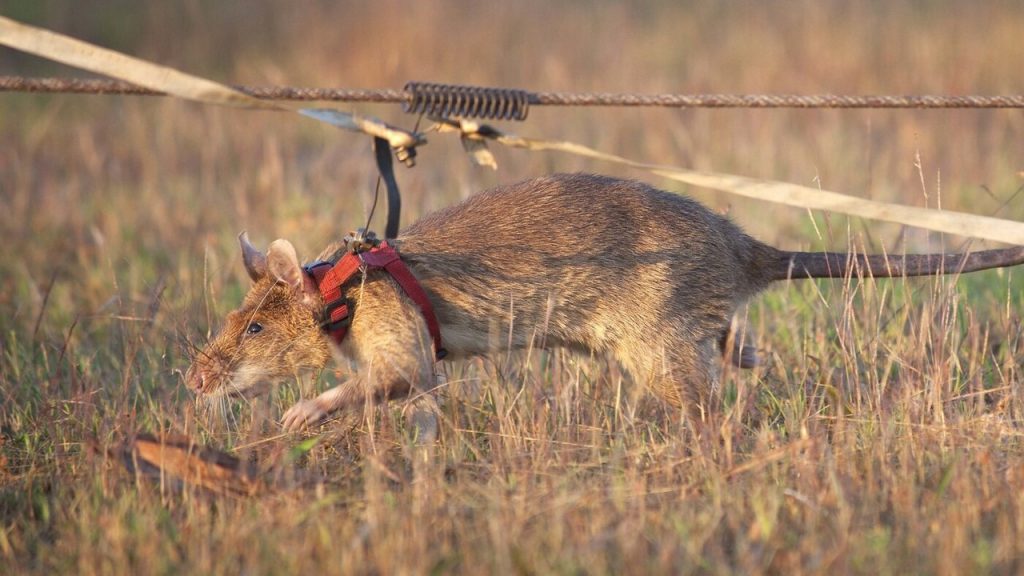The award-winning seven-year-old rodent has detected 71 landmines and 38 items of unexploded ordnance, according to his employers.
Magawa, an award-winning giant African pouched rat, is retiring after five years of sniffing out land mines and unexploded ordnance in Cambodia.
The seven-year-old rodent, originally from Tanzania, was trained by the Belgian charity APOPO which says Magawa helped clear mines from 225,000 square metres of land in his career, the equivalent of 42 football pitches.
But after detecting 71 landmines and 38 items of unexploded ordnance “he is getting a bit tired,” Michael Heiman, the charity’s programme manager in Cambodia, told the AFP news agency on Saturday.
“The best thing to do is to retire him,” Heiman said. In his autumn years, Magawa will spend more time doing what he loves – eating bananas and peanuts, Heiman added.
The charity trained Magawa in his native Tanzania to detect the chemical compound within explosives by rewarding him with tasty treats.
In 2016, he moved to Cambodia’s northwestern city of Siem Reap, home of the famed Angkor temples, to begin his bomb-sniffing career.

In September last year, the rodent won the animal equivalent of Britain’s highest civilian honour for bravery because of his uncanny knack for uncovering landmines and unexploded ordnance.
Magawa was the first rat to receive a PDSA medal in the 77 years of the awards, joining an illustrious band of brave canines and felines – and even a pigeon.
“Although still in good health, he has reached a retirement age and is clearly starting to slow down,” the charity said.
Magawa, who was born in 2014, can scurry across an area the size of a tennis court in just 30 minutes, something that would take four days using a conventional metal detector.
He alerts de-miners by scratching the earth.
While many rodents can be trained to detect scents and will work at repetitive tasks for food rewards, APOPO decided that African giant pouched rats were best suited to land mine clearance because their size allows them to walk across minefields without triggering the explosives – and do it much more quickly than people. They also live up to eight years.
The charity said 20 newly trained rats that recently arrived in Cambodia have just received their accreditation from the authorities to start landmine detection work.
But it will be a tough challenge following in Magawa’s footsteps.
Magawa is a “very exceptional rat”, Heiman said. “Obviously we are going to miss him in operations.”
 Alghadeer TV Alghadeer TV
Alghadeer TV Alghadeer TV
